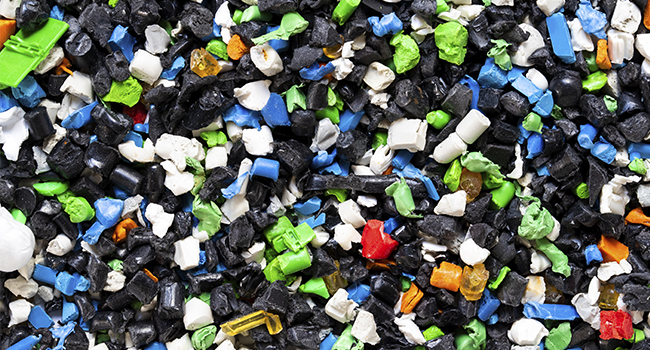Today, the greatest obstacle for plastic recycling is the lack of models and tests that can accurately describe the characteristics and quality of recycled plastics. A new project led by Aalborg University (AAU) and supported by Innovation Fund Denmark will create new knowledge and give a significant boost to plastic recycling.
A large number of companies could easily recycle major quantities of plastic. There is huge potential. Yet without knowing the specific properties of the recycled plastic, such as durability and strength, they can’t guarantee product quality and therefore won’t use it. “We now want to solve that problem, says Project Director and Professor Jesper de Claville Christiansen from AAU.
The project is a collaboration between University and four private companies: Grundfos, who deliver water solutions and manufacture pumps, which they take back for recycling; AVL, who recycle plastic products; Logstor, who produce district heating pipes, and Plastix, who recycle fishing nets.
In order to develop a model that can predict the properties of recycled plastics, the researchers behind the project must complete a number of experiments. These can include how the plastic reacts to a particular chemical environment, or how it is affected by temperature or impact. By comparing these experiments in a mathematical model, researchers will develop a method by which short-term tests can determine long-term properties
HUGE POTENTIAL FOR BOTH BUSINESSES AND THE ENVIRONMENT
LOGSTOR alone expects to be able to recycle several thousand tonnes of plastic using targeted, documented tests to guarantee the quality of the material. A district heating pipe from LOGSTOR forms a vital part of an important infrastructure designed to last 50 to 100 years, so guaranteed durability and functionality are crucial to LOGSTOR using more recycled plastics in future.
Plastic is an extremely important commodity that we want to use responsibly in our products for the distribution of green energy. Therefore, our vision is to optimise our processes and products to contribute to the circular economy, so that we can eventually recycle all products. This project will pave the way for that”, says Senior Director of LOGSTOR, Martin Lindgaard Pedersen.
Today, Grundfos recycles the metal from discarded pumps, but not the plastic. New models and testing methods could change this.
At Grundfos, we always work towards sustainability, but it must go hand in hand with quality and durability. We therefore look forward to this collaboration, which will enable us to upgrade and recycle our old plastic materials, says Chief Specialist Allan Hjarbæk Holm from Grundfos.
FACTS:
The project will run for four years and, in addition to the companies’ contribution, will receive DKK 14 million from Innovation Fund Denmark. Of this, DKK 11 million will go to AAU.
CONTACT:
- Jesper de Claville Christiansen, Project Manager & Professor at AAU, +45 9940 8970, +45 2913 3522, jc@mp.aau.dk
- Lea Laursen Pasgaard, Press Contact at AAU, +45 20 97 34 19 llp@adm.aau.dk
- Allan Hjarbæk Holm, Chief Specialist, Materials at Grundfos A/S, +45 2232 7630, Email: aholm@grundfos.com
- Torben Reimer, HR & Press officer at LOGSTOR A/S, +45 9966100, Email: torei@logstor.com
- Franz Cuculiza, CEO at Aage Vestergaard Larsen A/S. Tel. +45 98 54 16 55, fc@avl.dk
- Allan V. Rasmussen, Head of Sales and R&D at Plastix A/S +45 3010 2721, Allan@plastixglobal.com

